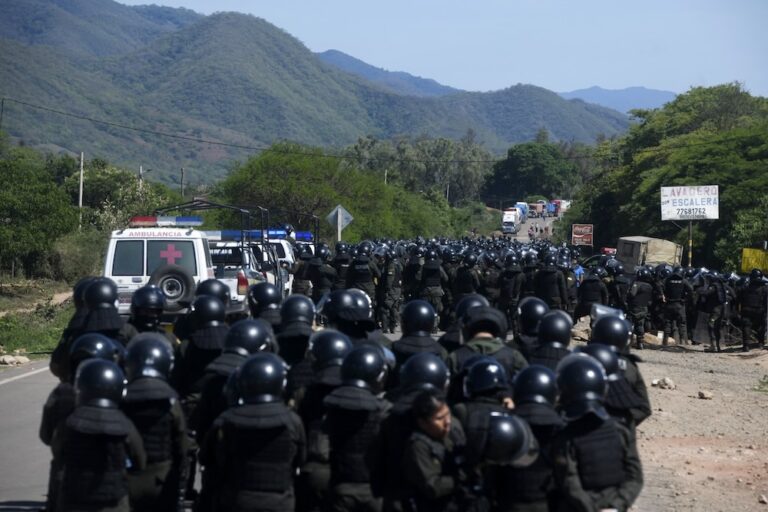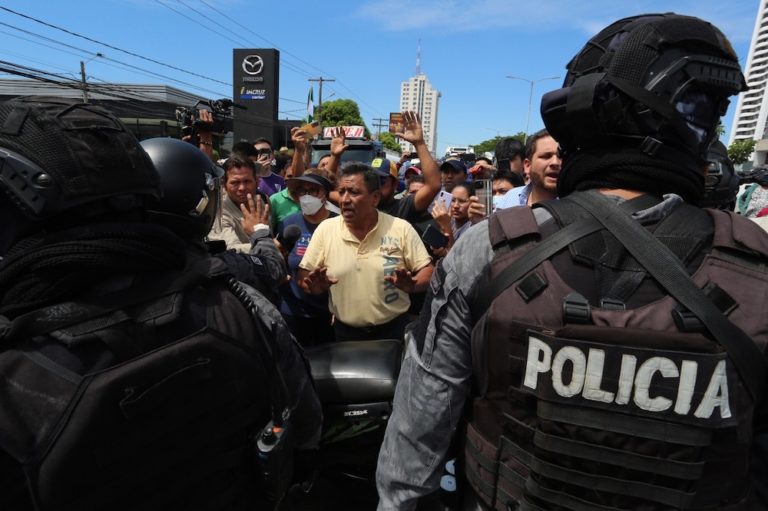(IAPA/IFEX) – The following is a 26 October 2000 IAPA press release: IAPA PROTESTS ATTEMPT TO IMPOSE GAG LAW IN BOLIVIA Miami (26 October 2000) – The Inter American Press Association issued a letter to Vice-President of Bolivia and President of the National Congress Jorge Quiroga in response to a number of attempts to promote […]
(IAPA/IFEX) – The following is a 26 October 2000 IAPA press release:
IAPA PROTESTS ATTEMPT TO IMPOSE GAG LAW IN BOLIVIA
Miami (26 October 2000) – The Inter American Press Association issued a letter to Vice-President of Bolivia and President of the National Congress Jorge Quiroga in response to a number of attempts to promote the application of so-called gag laws (Ley Mordaza) in the country.
The proposal was immediately rejected by professional and labour organisations and the media and following a number of important demonstrations protesting the reconsideration of the law, the bill was definitively withdrawn from Congress.
Following is the text of the IAPA letter, signed by its president, Danilo Arbilla of the weekly Búsqueda, in Montevideo, Uruguay, and by the president of the Committee on Freedom of the Press and Information, Rafael Molina, of the magazine Ahora, in Santo Domingo, Dominican Republic.
“To the Vice-President of the Republic and President of the National Congress,
With great concern, the Committee on Freedom of the Press and Information of the Inter American Press Association has followed the attempt of several Bolivian senators to revive a bill restricting the exercise of press freedom in their country.
Apart from the insulting adjectives used by these individuals to describe journalists, which are completely unacceptable, an attempt was made to annul the 1925 Press Law. Despite the antiquity of this law, Bolivian press workers understand that it guarantees freedom of the press and information, by stipulating that a pluralist jury, elected by municipalities, should be the body that reviews press crimes, specifically as they refer to public officials. Second, the law guarantees the protection of professional secrets. These two guarantees are fundamental pillars of Bolivian democracy.
Faced with the negative reaction of the Bolivian media and labour and professional journalists’ organisations, the proponents of this bill were forced to back down, thus definitively archiving the damaging bill, which contradicted the fundamental principles of the Chapultepec Declaration, which has been ratified by the Bolivian head of state.
We would like to commend the Executive and the principal political parties in Bolivia for having the good sense to reject these efforts and we note that this position must be maintained at all times. The most recent assembly of the Inter American Press Association applauded the state of press freedom in Bolivia. This does honour to your country’s government.”


